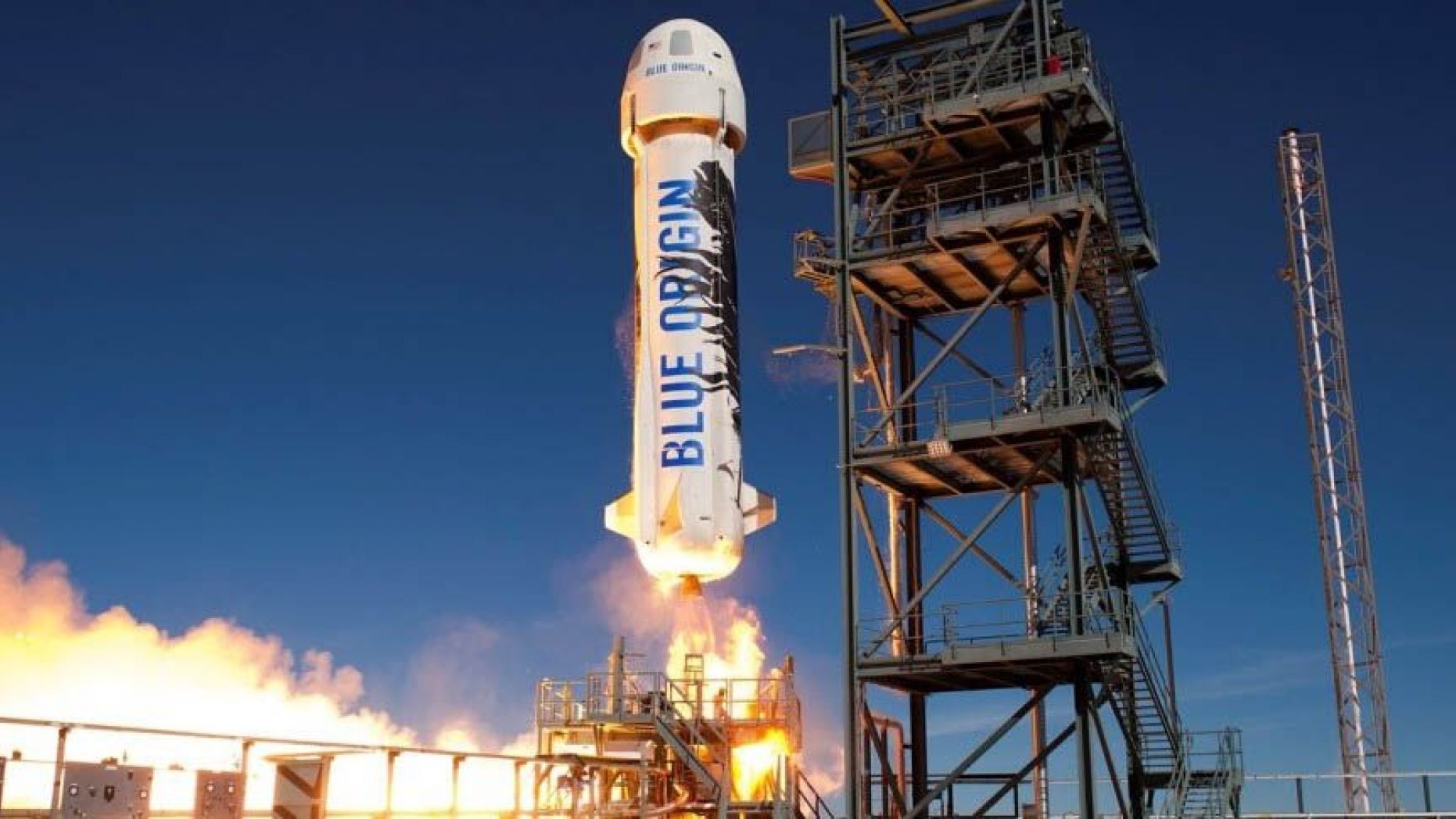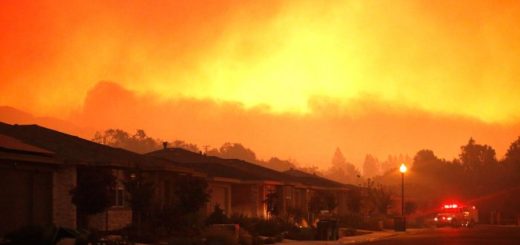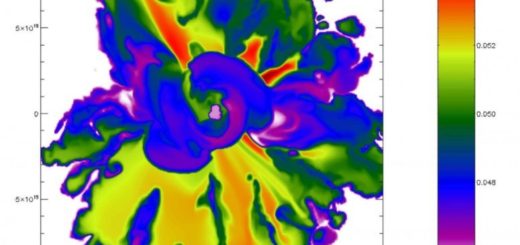Blue Origin launches 1st New Shepard spaceship test flight in over a year

Blue Origin’s reusable New Shepard suborbital vehicle took to the skies today (Dec. 12) for the first time in more than a year, according to media reports and the Federal Aviation Administration (FAA).
New Shepard — a rocket-capsule combo that Blue Origin is developing to take passengers and research payloads to suborbital space — lifted off from the company’s test facility in West Texas, according to an FAA launch licensethat Geekwire noticed.
Details are sketchy. Blue Origin, which is run by billionaire Amazon.com founder Jeff Bezos, has not released any information about the test. But the website Parabolic Arc reported via Twitter that the flight was a success, with Blue Origin recovering both the booster and the capsule.
A New Shepard hadn’t flown since October 2016, when the vehicle aced a test of its in-flight abort system. That suborbital mission marked the fifth successful launch and landing of the same individual New Shepard vehicle over a span of 11 months.
Blue Origin representatives said at the time that they planned to retire that booster and capsule, so the vehicle that flew today was presumably a new one on its uncrewed maiden launch.
New Shepard is designed to fly up to six passengers on brief jaunts to suborbital space. The booster comes back to Earth for a vertical touchdown via engine burns, in much the same way first stages of SpaceX’s Falcon 9 rockets do during orbital flights.
The unpiloted New Shepard capsule, meanwhile, lands softly under a parachute. The capsule features the biggest windows ever to fly in space, along with 530 cubic feet (15 cubic meters) of interior volume — enough for folks to turn somersaults inside, Blue Origin representatives have said. The company has not revealed how much a ticket to ride New Shepard will cost.
Today’s test flight may well presage some big things from Blue Origin in the near future. The company has said it plans to begin commercial flights of New Shepard soon — perhaps as early as next year.



 Creators of mankind
Creators of mankind Description of “Tall white aliens”
Description of “Tall white aliens” Where they came from?
Where they came from? About hostile civilizations
About hostile civilizations The war for the Earth
The war for the Earth “Tall white aliens” about eternal life
“Tall white aliens” about eternal life Video: “Nordic aliens”
Video: “Nordic aliens” Aliens
Aliens Alien encounters
Alien encounters The aliens base
The aliens base UFO
UFO Technology UFO
Technology UFO Underground civilization
Underground civilization Ancient alien artifacts
Ancient alien artifacts Military and UFO
Military and UFO Mysteries and hypotheses
Mysteries and hypotheses Scientific facts
Scientific facts


















